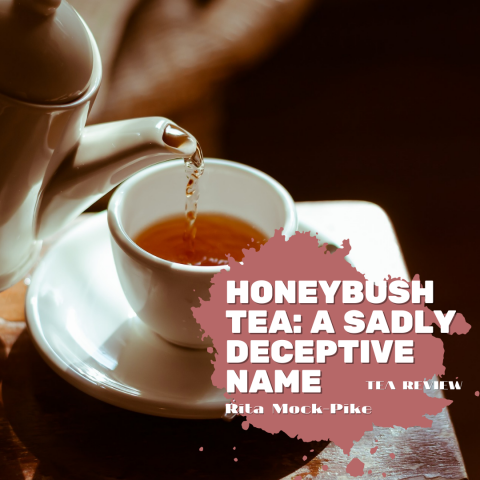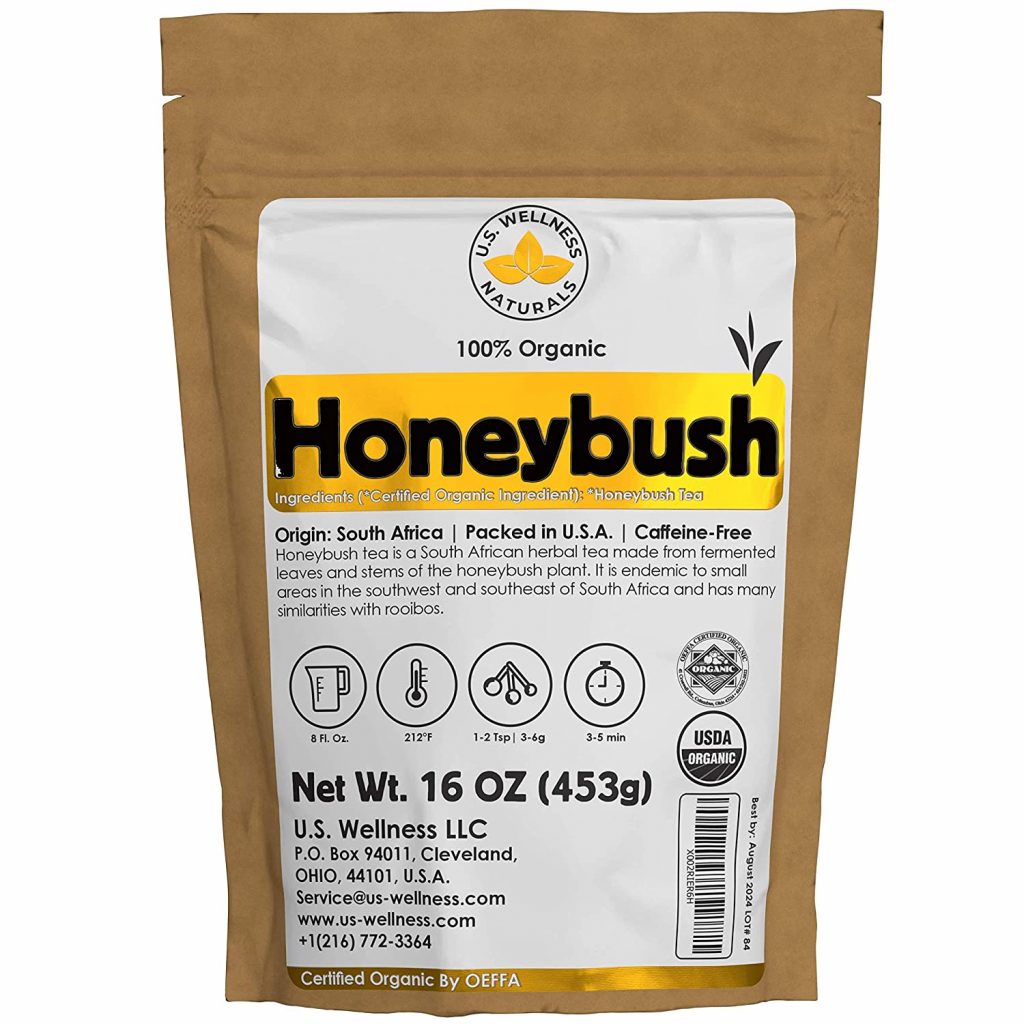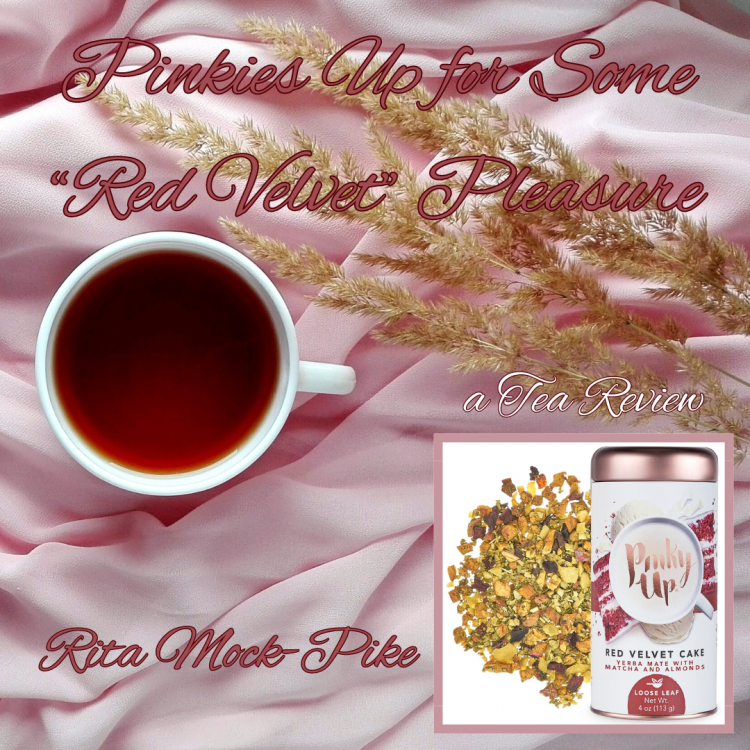Honeybush Tea: A Sadly Deceptive Name

Image by dungthuyvunguyen on Pixabay
After such a delightful stroll down the annals of my tea delights in April with my Bos Rooibos tea, I thought I’d try another South African tea purported to be similar to the red bush delicacy. I found a Fair Trade offering of Honeybush tea and ordered before April’s last calendar page turned and eagerly awaited the new-to-me tea.
About Honeybush

Technically, both Honeybush and Rooibos are not tea, but tea tisanes. This simply means that the tea-like beverage is made from something other than the Camellia Sinensis plant. They’re considered herbal (no caffeine) and leaf-based. Many herbal teas are based on fruits or other plant parts instead of leaves.
You brew Rooibos and Honeybush the same way as other teas (though you should always learn the best temperature for the water, how long to steep, how much loose-leaf to use, etc.).
Honeybush was initially “discovered” by the Swedish botanist, Thunberg, in 1772. He often made trips to the Cape and on one of these occasions, he documented the honig tee (Honeybush). However, the first documented notes about the bush were made in 1705. The earliest record of Europeans in South Africa using it for medicinal purposes doesn’t appear until 1830.
The tea has been harvested since but packaging only dates back to the 1960s by Caspa Tea. It took until 1992 before scientists started researching the propagation and cultivation of the plant, and well, I suppose things went from there. This long gaped timeline is probably why it isn’t as well known as Rooibos.
Flavor Profile
Honeybush tea is an extremely earthy tasting tea. It sort of just tastes like leaves to me, rather than tea. I like a delicate flavor or robust grassiness, I guess, not this leafy profile. I’m not quite sure how else to put it apart from earthy, leafy, dark tasting tea. There’s nothing sweet about it, despite the name.
My Impressions
This one, I’m sad to say, just didn’t do it for me. There’s nothing wrong with the flavor, though I didn’t like it, either. The tea was touted as “similar to Rooibos” and of that tea I am a huge fan. Since the two taste nothing alike, it’s possible my disappointment lies heavily in that realm.
U.S. Wellness Naturals Honeybush appears to be at least moderate quality though I can’t testify to leaf size practices in high-quality Honeybush. It smells and tastes organic – unadulterated, pure. If you’re game for a much “bushier” tasting tea and want to try something new from South Africa, I’d recommend this in small doses.
Note: I did find a brand that offers chocolate Honeybush tea. I suspect this would suit me better despite not being a huge fan of chocolate. I think the unique flavor of Honeybush would be softened and blend well with chocolate.
Looking for more tea options? Check out these reviews from Rita.
- Bos Rooibos Tea review
- Cuppa Cake Tea review
- Tower of London Tea review
- Strawberry Sensation Tea review
Editor-in-Chief of The MockingOwl Roost, Rita Mock-Pike is the granddaughter of aviatrix, Jerrie Mock, first woman to pilot an airplane solo around the world. Rita has found inspiration from her grandmother’s life and flight and pursued many of her own dreams in theatre, podcasting, novel writing, and cooking up delicious food from around the world. She now writes on food, travel, pets, faith, and the arts. She’s happily married to Matt, and faithfully serves the very fluffy kitten queen, Lady Stardust.





1 Comment
[…] Honeybush Tea review […]